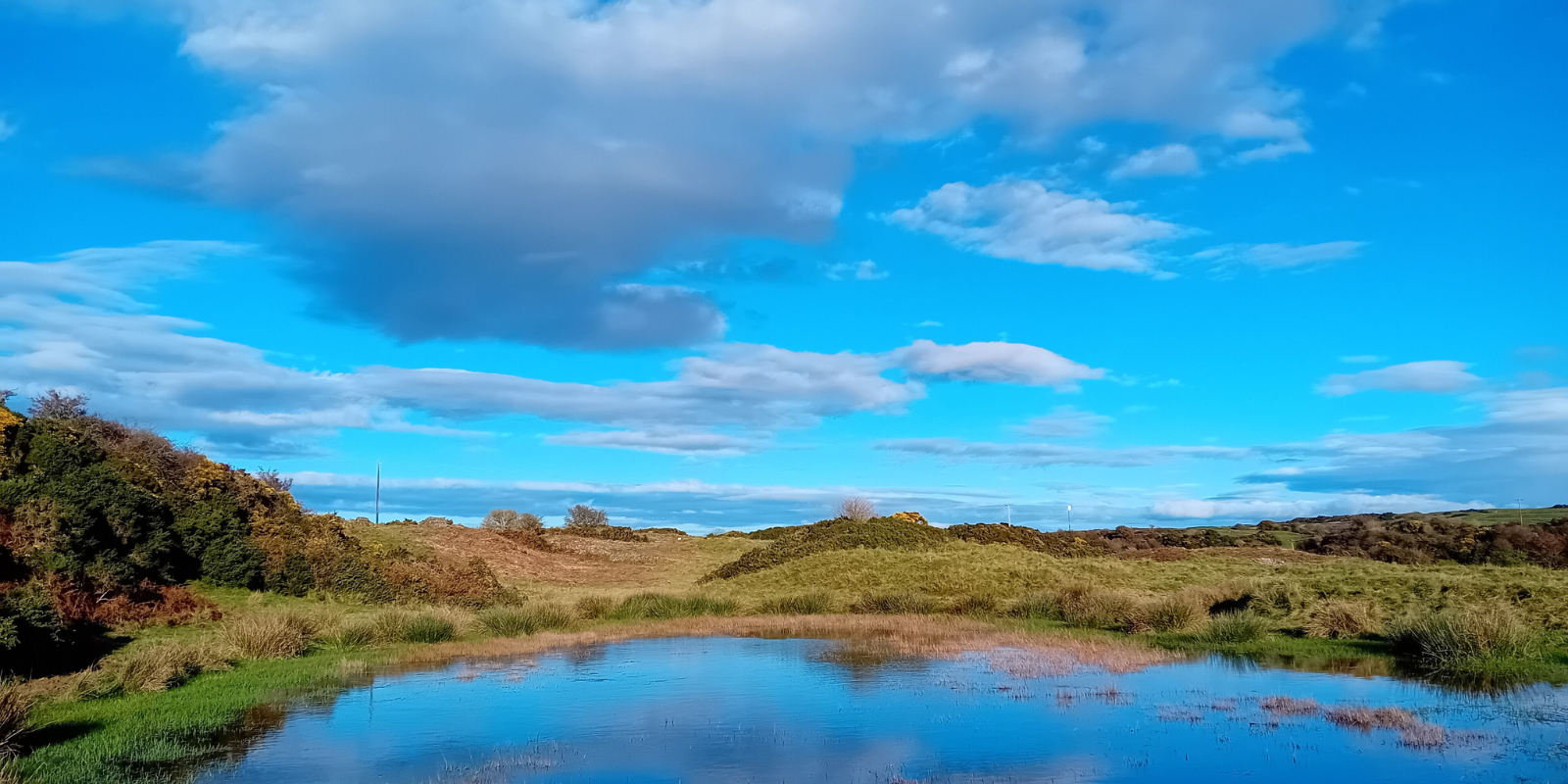Today is World Environment Day! This UN international day, held annually on 5 June, has become the largest global platform for bringing people together to protect and restore our planet.
We cannot turn back time, but we can grow forests, revive water sources, and bring back soils. We can be the generation that finally makes peace with land. We can be #GenerationRestoration – UN World Environment Day.
Supporting protected species
At The Future Forest Company, restoring land and protecting ecosystems is at the heart of what we do. Our site at Mill of Plunton lies within the Galloway & Southern Ayrshire UNESCO Biosphere, a protected area known for its diverse ecosystems and unique wildlife.
On the site, our dedicated team have restored ten ponds and successfully created two brand new ponds, creating a haven for the European protected species, great crested newts. Enhancing and managing our ponds will support and boost the great crested newt populations, as well as the local otters residing at Mill of Plunton.

Internationally important populations
Great crested newts are the largest newt species in the UK. They have been around for approximately 40 million years, but populations have disappeared from many sites across Europe over the last 100 years, mainly because of intensive agriculture and pond loss.
Due to the severe decline in populations, great crested newts, along with their eggs, breeding sites and resting places are strictly protected by law. These rare, eye-catching creatures are native to our shores, and our UK populations are of international importance.

Healthy ponds, healthy newts
Great crested newts need both land and water homes, spending the majority of their life in habitats such as grassland, woodland or hedgerows, and then migrating to ponds in the spring to breed. They have very particular requirements for their water habitats, travelling up to a kilometre to find the right pond. Finding great crested newts in a pond is a great indicator of healthy water.
Newts in our ponds
Recently, we were delighted to find that great crested newts have been confirmed as present in one of our new ponds at Mill of Plunton, and smooth newt eDNA has been found in both new ponds. Our Head of Ecology, Lindsay Mackinlay, tells us more:
“Great crested newts are our biggest, rarest and most protected newt in Scotland, so we are delighted that they have bred in one of our two new ponds at Mill of Plunton. We only dug the ponds last summer and hoped that we had found the ideal place to help a locally important population of this beautiful species."

“Through egg searches of aquatic plants and eDNA sampling of water in the pond, we have used good old traditional methods alongside the newest survey techniques. Whilst we were able to see many tell-tale signs of great crested newt egg-laying (folded leaves!), confirmed by the eDNA samples, the eDNA work also recorded another newt species present in both ponds; the smooth newt.
This work just shows how quickly wildlife will respond if given a chance. We hope to create more than 20 ponds at our Leadloch site next and we are looking for a business to partner us in this work.”
If your business would like to help restore nature by sponsoring our Leadloch pond work, get in touch today!
